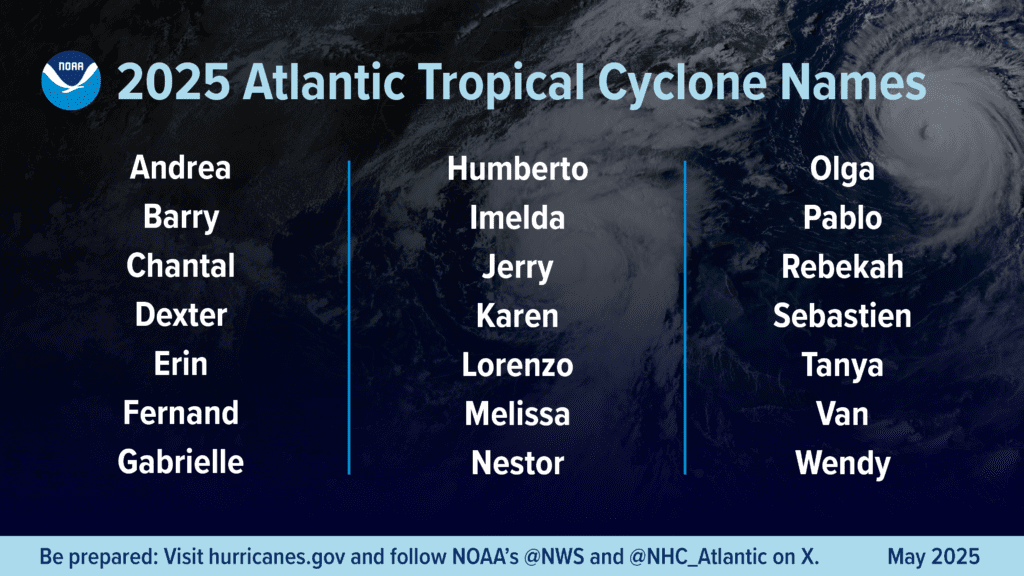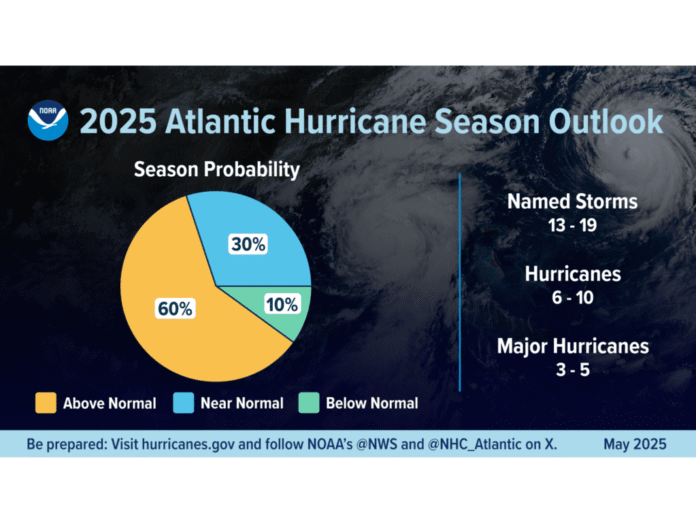The NOAA (National Oceanic and Atmospheric Administration) is predicting an above-normal 2025 hurricane season for the Atlantic, forecasting 13 to 19 named storms, of which six to 10 are forecasted to become hurricanes and three to five are forecasted to become major hurricanes.
NOAA said it has a 70% confidence in those ranges.
“As we witnessed last year with significant inland flooding from hurricanes Helene and Debby, the impacts of hurricanes can reach far beyond coastal communities,” Acting NOAA Administrator Laura Grimm said in a press release.
Notice: JavaScript is required for this content.
Families need to be prepared, said Gov. Josh Stein in a briefing and press release, including knowing the emergency plans for your children’s schools.
“As our state braces for hurricane season, I encourage North Carolinians be aware of emergency management warnings and resources so that they have a plan to stay safe in case of an emergency,” Stein. “Emergency Management continues to prepare amidst uncertainty on the federal level — we must stay the course and do everything in our power to keep North Carolinians safe no matter what happens in Washington, DC.”

Below are some things the governor’s office says you can do now to get prepared:
- Put together an emergency kit, including non-perishable food and water (1 gallon per person per day) for 3 to 7 days, a battery-powered or hand crank radio or a National Oceanic and Atmospheric Administration Weather Radio with extra batteries, and prescriptions and over the counter medication.
- Be aware of any unique needs for babies, elderly, or disabled members of your household, as well as pets.
- Have multiple ways to receive severe weather warnings such as the weather alert app on your phone, a National Oceanic and Atmospheric Administration Weather Radio, or local TV news.
- Build an emergency plan in case you and your family need to evacuate, including a plan for communication. Have printed copies of family members’ phone numbers, social media handles, email addresses, and important medical information in case mobile devices die. Plan where you will meet if you are separated from your family and have copies of important papers such as birth and adoption certificates, driver’s licenses, or military ID’s.
- Take steps to protect your home by preparing a full list of personal items to help with insurance settlements or tax deductions.
- Be sure you know how to shut off your utilities safely. Water, electricity and gas are key services that can also cause special problems during an emergency. Do NOT try to turn the gas back on yourself. Always call a trained expert.
The governor’s release also included ways to get involved in your community’s preparedness activities:
- Learn about the emergency plans for your children’s schools, your workplace, and your neighborhood.
- Participate in community preparedness exercises and drills.
- Volunteer with a Community Emergency Response Team (CERT) to learn about disaster preparedness and receive training in basic disaster response skills.
- Contact the NC Volunteer Organizations Active in Disaster for more ways to help.
“This outlook is a call to action: be prepared,” said NOAA’s National Weather Service Director Ken Graham. “Take proactive steps now to make a plan and gather supplies to ensure you’re ready before a storm threatens.”
Click here to view the full Emergency Management briefing.
Click here for more tips on how to be prepared for hurricane season.
